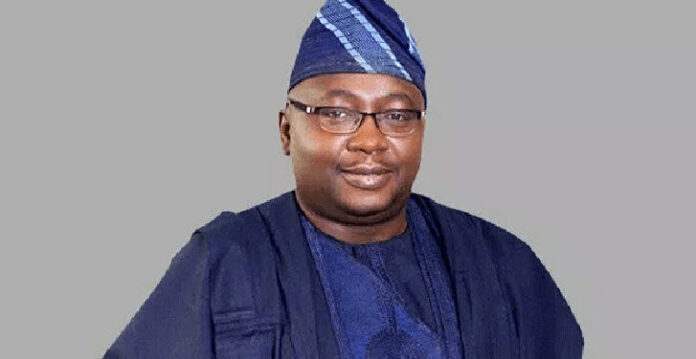Restructuring: FG deploys special teams to underperforming Discos
CHIGOZIE AMADI
The Federal Government has commenced the deployment of special teams to underperforming power distribution companies as part of a restructuring programme of the Discos.
It announced a major overhaul of the power distribution sector, beginning with a pilot reform programme targeting two underperforming electricity distribution companies.
The pilot, scheduled to commence between May and August 2025, will involve one Disco each from the Northern and Southern parts of the country.
This came as the power distributors, in response to the move by the government, declared that they were not interested in power sector politics, but would support progressive policies of the business.
The latest move follows a comprehensive assessment of systemic challenges plaguing the Discos, including governance gaps, infrastructure deficits, and commercial inefficiencies.
The Power Minister, Adebayo Adelabu, disclosed the plan to restructure the companies after a meeting with the Japanese International Cooperation Agency, which presented a roadmap titled “Revamping of the Distribution Sector in Nigeria”.
A statement issued in Abuja by the Special Adviser, Strategic Communications and Media Relations to the minister, Mr Bolaji Tunji, on Monday, stated that Adelabu presented the document during a high-level meeting in Abuja.
He said the move is to initiate sweeping reforms to revitalise the nation’s electricity distribution sector.
“We can no longer fold our hands and watch the inadequacies of Discos, whose performances fall short of expectations. This pilot is not optional, we will use regulatory authority to restructure underperforming Discos and compel compliance if necessary,” the minister declared.
The PUNCH sought clarity about the latest move, and an impeccable source at the Federal Ministry of Power, who pleaded anonymity due to the lack of authorisation to speak on the matter, confirmed that experts would be hired to work with the affected Discos.
“The Federal Government will deploy experts to go into the operation of the underperforming Discos. The experts will go into different areas of their operations. The purpose is to revamp their operations.
We are starting with a pilot test that will involve two of them. It is the outcome of the pilot test that will be applied to the others.
“This will involve bringing outside experts to strengthen the government structure of these Discos. It is not about the government taking over, it is about working in collaboration. Don’t forget that the information and data that will be needed will come from the Discos. So the Discos and the outside experts will work together.
“But it is not what any Disco can say they are not interested in; they are going to be compelled to do it. We want to know the issues, and the experts will offer suggestions that will now be implemented in other underperforming Discos. For those that are doing well, it will aid in further strengthening them,” the official said.
Ranking the power firms in order of their performance, the source listed the 11 Discos as Ikeja, Abuja, Eko, Ibadan, Benin, Port Harcourt, Enugu, Kano, Kaduna, Jos, and Yola, giving a hint of the possible two Discos to be overhauled in the pilot test.
The new reform aims to replicate a model for operational turnaround, combining internal restructuring, external expertise, and federal oversight to achieve rapid improvements in service delivery. It also emphasises reforming Discos “from within” by integrating outside experts, strengthening leadership, and aligning government support with short-term results in pilot zones to lay the groundwork for long-term sector-wide transformation.
The minister noted that while past interventions encountered resistance, the new approach will be “intentional and decisive,” tackling both national and region-specific obstacles, including vandalism, leadership failures, and socio-cultural challenges that hinder operations in some areas.
Adelabu stressed the urgency of the intervention, stating, “We can no longer fold our hands and watch the inadequacies of Discos whose performances fall short of expectations. This pilot phase is not optional, we will use regulatory authority to restructure underperforming Discos and compel compliance if necessary.”
He acknowledged persistent resistance to past reforms but vowed to address both universal challenges, such as vandalism, governance, and region-specific issues, including cultural barriers hindering operations.
“Key to the initiative is resolving the Discos’ inability to invest in infrastructure upgrades. Their lack of investment is not solely due to unwillingness but also a lack of incentives. Returns on infrastructure spending are not commensurate, so we must attract investors and franchise viable and the not so viable areas to capable operators, so we can have a mix,” Adelabu explained.
He directed the Nigeria Electricity Regulatory Commission to enforce franchising opportunities and ensure Discos’ cooperation, noting, “NERC must secure their buy-in. Past efforts failed due to resistance, but this time, we will be intentional and decisive.”
The minister also highlighted the need for public education to clarify the roles of generation, transmission, and distribution entities. “Many Nigerians still view the sector as a single entity. Educating consumers is critical to building trust and support for these reforms,” he added.
JICA’s proposal, developed after the minister’s earlier visit to Japan’s energy market, underscores a “holistic approach” to revamping distribution, including proactive government-JICA collaboration and measurable milestones.
On his part, JICA’s Power Sector Policy Advisor to Nigeria, Takeshi Kikukawa, noted during the presentation that, “the goal is to deliver immediate results in pilot areas while creating a sustainable foundation for nationwide improvement.”
The power ministry officials and NERC will finalise pilot details in the coming months, prioritising Discos with acute operational deficits.
The initiative marks the most robust effort to date to resolve the power distribution crisis, signalling a renewed push for accountability, investor confidence, and reliable electricity access.
Recall that the minister had repeatedly expressed concerns about the lack of investment in the distribution network by electricity distribution companies.
He had specifically pointed out that this lack of investment was hindering progress towards achieving the government’s goals, particularly regarding customer migration to higher tariff bands.
Stakeholders have expressed deep concerns over the failure to review the licences of distribution companies, 12 years after the privatisation of Nigeria’s power sector. The power sector in Nigeria was officially privatised on November 1, 2013.
Meanwhile, the electricity distribution companies said they were not interested in the power sector politics, but would support any policy that could improve the industry.
The Executive Director, Research and Advocacy, Association of Nigerian Electricity Distributors, Sunday Oduntan, stated this on Monday while reacting to plans by the government to overhaul and restructure the Discos.
Speaking with our correspondent, Oduntan said the power distributors are working with the government to aid power supply, but will not engage in the politics of the sector.
“We, the Discos, are working very hard with the Federal Government and state governments to ensure that we bring electricity to Nigerians. The more electricity we are able to distribute, the more money we can collect, and the more prosperity for Nigeria in terms of job creation.
“So, we are for progress and interested in anything that will improve the power sector. We are not interested in the politics of the power sector. We are interested in the good policies of the Federal Government,” he stated.























